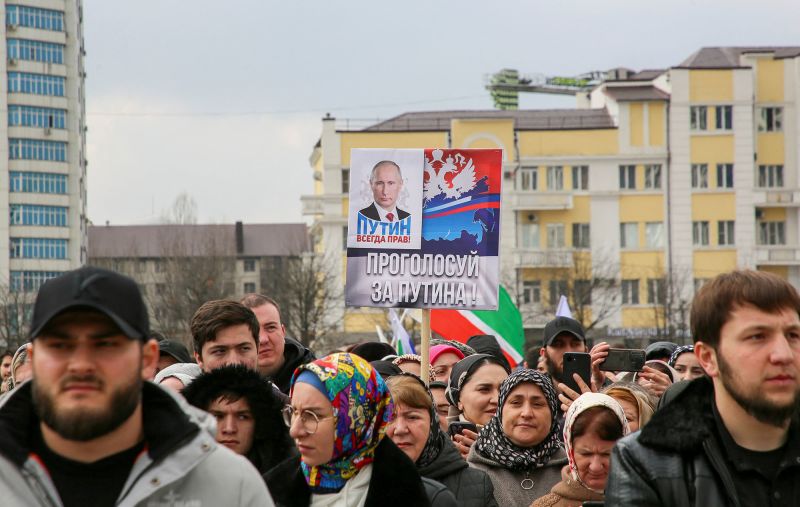Delving into the heartland of Russia, one may encounter a multitude of contrasting viewpoints. It is true that scenes of protest and defiance have frequented global news outlets, projecting an image of a nation divided. However, when we explore precisely what a considerable portion of the Russian population believes, another picture is painted: that of avid supporters rallying behind their leader, President Vladimir Putin, as the election nears.
One of the key drivers behind Putin’s enduring popularity is his reign marked by a sense of stability and security. After the turbulent years following the fall of the Soviet Union, experiencing an era of profound uncertainty and economic deterioration, Putin’s ascent to power in 1999 incited a stark turnaround. The Russian economy began to stabilize, and aspects of ordinary life gradually improved. Many Russians credit Putin for this restoration, viewing him not only as their leader but also as a savior who brought back a sense of dignity and hope to the nation.
Additionally, Putin’s strong leadership style resonates with a considerable segment of the population, who view his assertive approach to foreign policy as a necessity in the face of Western antagonization. His ability to stand firm in his beliefs, make difficult decisions, and project a united front on the world stage has earned him broad respect among many Russians. His posture is perceived as an affirmation of Russia’s strength and sovereignty, appealing to the deep-seated national pride that runs through the nation’s veins.
Moreover, state-controlled media outlets play a significant role in shaping public opinion to favor Putin. The Kremlin’s dominance over Russia’s media landscape ensures that most households have access to content which portrays Putin positively, emphasizing his achievements and omitting any dissident voices. For example, his actions in Crimea were framed as a response to a substantial Russian-speaking population’s plea for help, rather than an act of aggression. This narrative resonates with many and fosters a profound sense of trust in Putin’s leadership.
Many Russians also believe that despite the economic sanctions imposed on Russia by the West due to the nation’s alleged political and military transgressions, Putin has managed to keep the country afloat. The patriotic narrative held by many Russians portrays the sanctions as an attack on Russian sovereignty, and thus rallies further support for Putin, who is seen as bravely piloting their nation through adversity.
Another aspect underpinning Putin’s popularity is the lack of a viable alternative. Many Russians express skepticism about the opposition being able to provide better governance than Putin and worry about potential instability or uncertainty that may arise from a leadership change. The opposition, mostly represented by Alexei Navalny, is perceived by many as lacking the experience or competence required for ruling a country as vast and complex as Russia.
Hence, although protest scenes against Putin are undoubtedly significant and indicate a desire for political change among certain sectors of the Russian population, it would be incorrect to consider these as a unanimous representation of public sentiment. Just as the world bears witness to the protests, it is also essential to recognize the substantial support for Putin. As the election draws closer, Putin’s popularity remains apparent despite the economic hardships and political controversies that swirl around his administration. With a unique blend of charisma, a robust media strategy, and a perceived track record of stability, Putin continues to receive enduring support from a significant portion of the Russian population.




